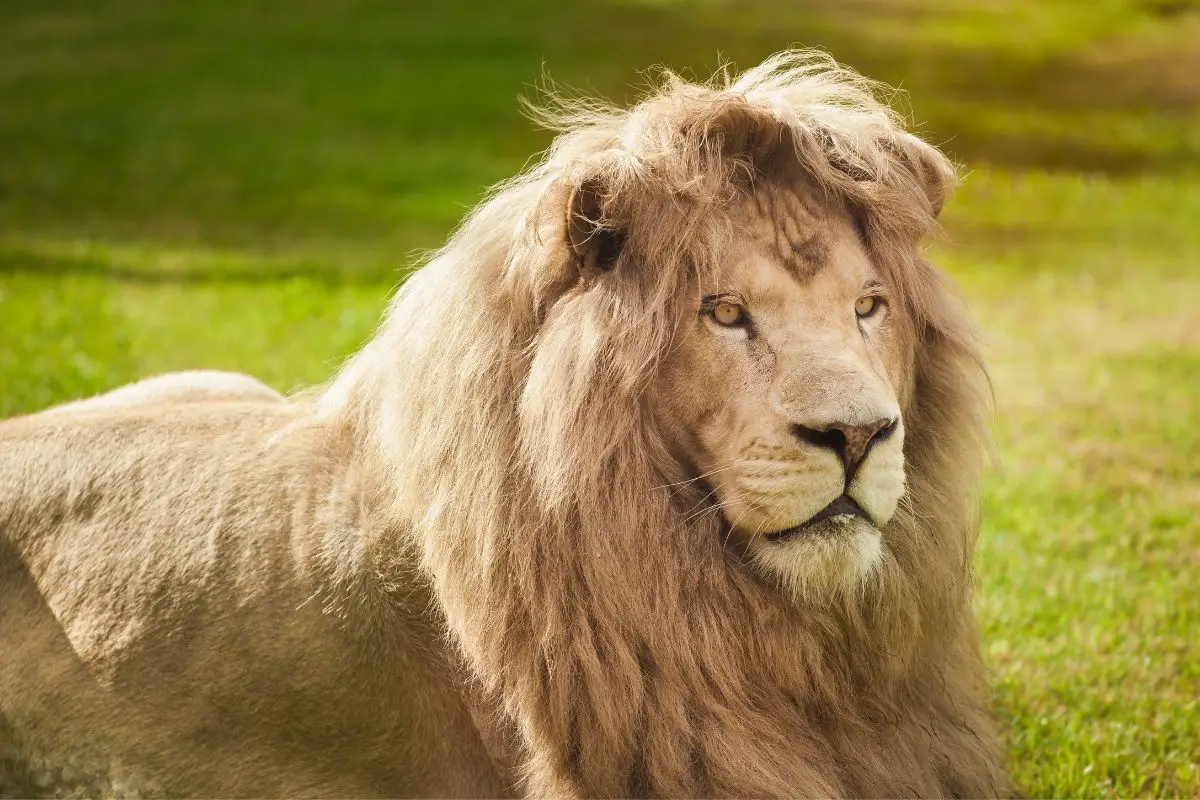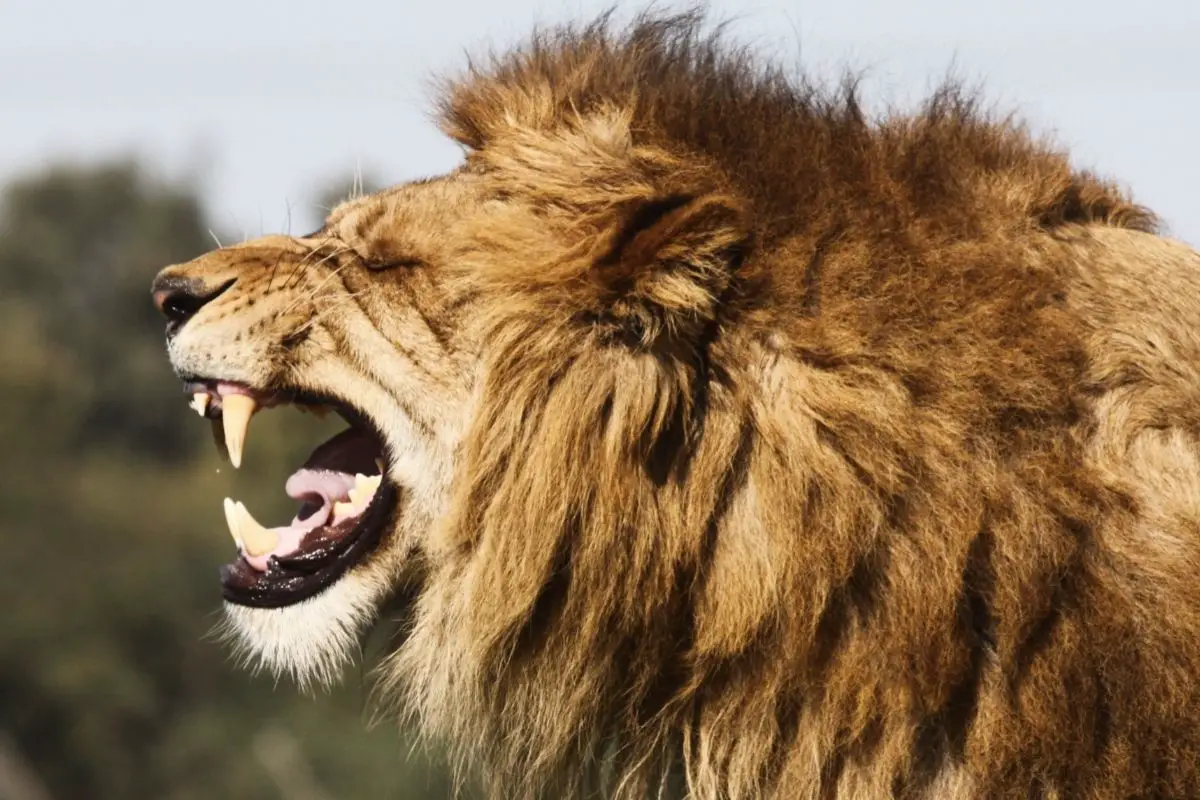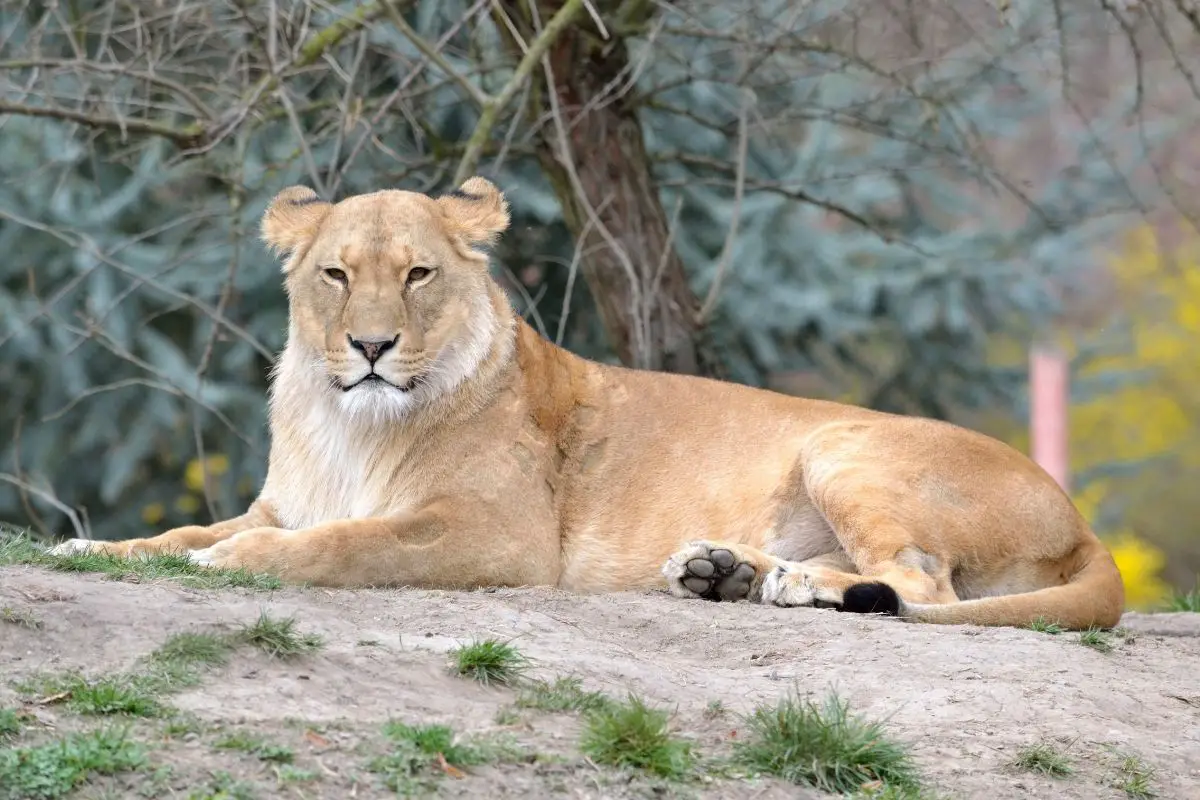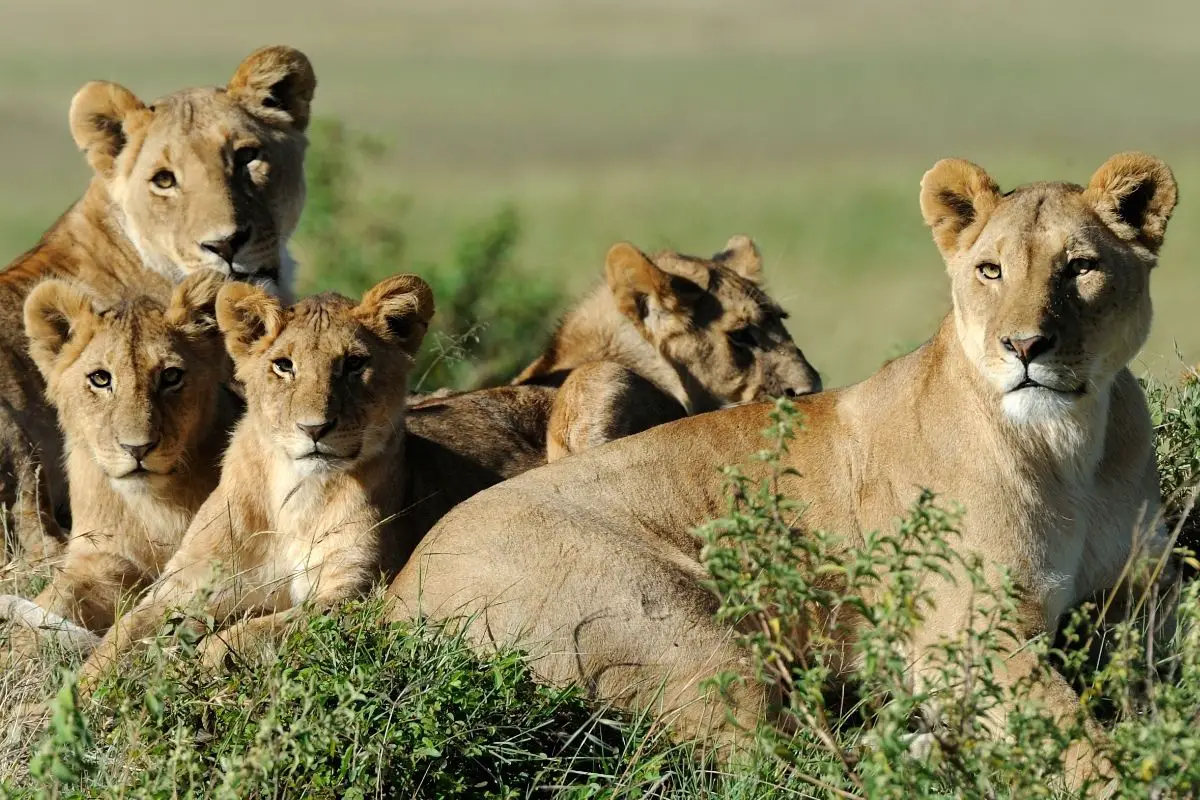Lions in Europe? Could it be true or are we just lions about it?
When you think about lions, you immediately associate them with Africa, and why not. Africa is the home of the lion majority of the lion population.
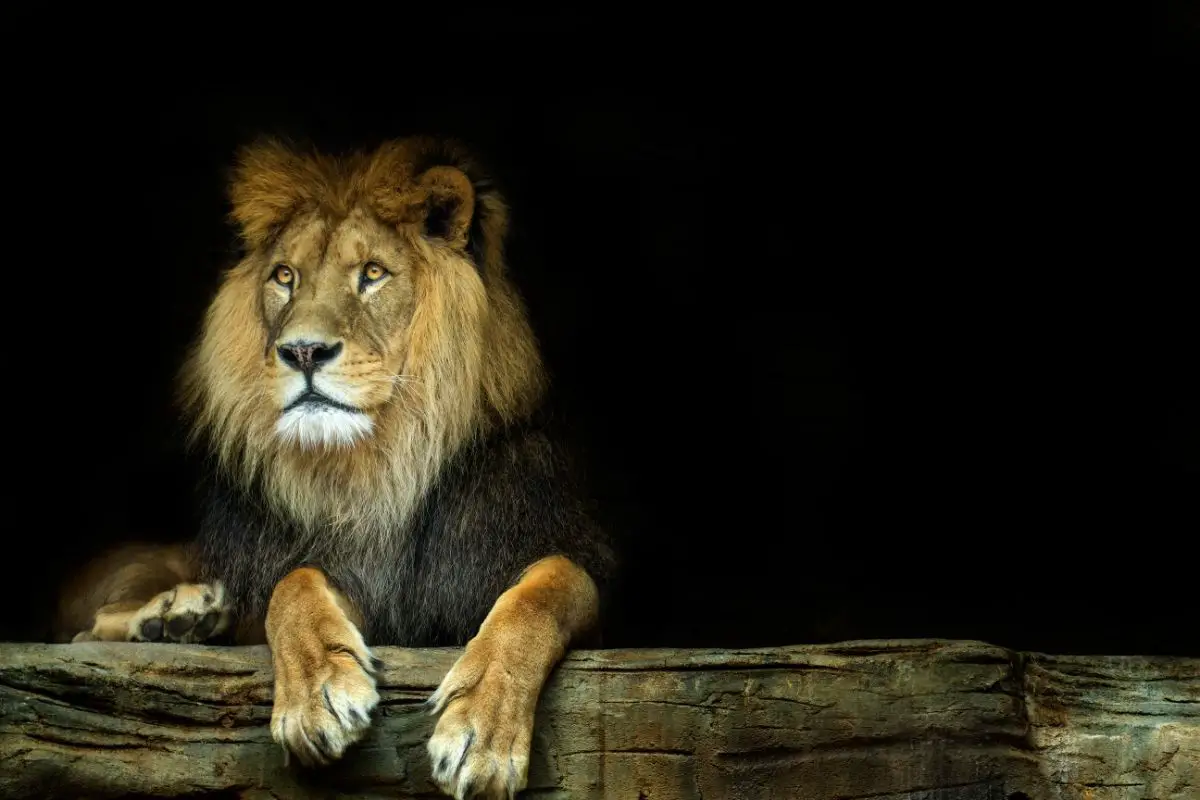
Africa is the cradle of existence. Many species, including our own, began there and spread across the world.
So it’s not a leap to conclude that the lion did the same thing.
The idea that there were once lions in Europe came from hard evidence that was found by archaeologists in the early 20th century.
The remains of lions were found in many different European countries and lead to the discovery that lions may have been roaming around in places as far as Greece, Russia, the Balkans, and even some in the United Kingdom.
Could there still be lions in Europe today? That’s the question on every lion enthusiast’s mind.
Well, here we’ve found out everything there is to know about European Lions and written it down in one handy guide.
Were There Any Lions In Europe?
Lions were thought to be roaming around in Europe as far back as 700,000 years ago, maybe even longer.
This is based on fossils of lions that have been found all over Europe.
One of the first lion fossils was dug up in Germany and dated back to around 191,000-57,000 years old.
So as you can see, lions were in Europe a very, very long time ago. However, it’s important to note that there are no wild lions currently in Europe.
Sure you may find the odd Mufasa at the zoo, but you won’t find Simba in the forests.
Lions in Europe were indicated in historical literature. Particularly Greek literature. Remember the story of Hercules?
Hercules was the half son of the Greek god Zeus. He was ordered to complete 12 labors in order to prove himself to the gods.
The first labor was to slay a lion that had been troubling the people. He slew the Nemean lion and returned with its skin.
Previously this was just thought to be a myth.
However, knowing what we now know about lions in Europe, there are people who believe there to be some truth to the story.
This is often cited as evidence of the existence of lions in Europe, alongside the fossils.
While there are some parts that are mythological, Greek myths often centered around some truths.
And there likely were lions in Greece at the time, preying on the people.
It’s important to note that there were lions in Europe, however, there weren’t a great many.
At its most, the population of lions would have been about a few hundred thousand scattered far and wide and living in the wild.
Therefore to have seen one would be rare, and probably the cause of a myth or two.
Going back even further than the myth of Hercules, lions have been depicted to be in Europe as far back as the stone age.
There are cave paintings showing lions doing lots of different things, some being hunted, some hunting, and even just chilling there.
One of the most famous historic caves filled with paintings from the stone age (likely drawn by cavemen) is Chauvet cave.
Chauvet cave is a cave that was discovered in the Vallon-Pont-d’Arc in Southern France.
This cave is filled with pre-historic drawings and markings all over the wall that was preserved so impeccably because of the condition of the cave, that we can still clearly make out the artwork. It’s like a prehistoric gallery for cavemen.
Think Guggenheim but for Homo-troglodytes. Chauvet cave has its own panel dedicated to lions.
The panel is dated to be between 30,000- 33,000 years old. And it was unlikely that the artist was able to travel far enough to Africa to see a lion.
Which is further evidence that lions existed in Europe. The discovery of the cave and the lion panel was what triggered a lot of the research into European lions.
When Did European Lions Go Extinct?
Wouldn’t it be great if you could just take a stroll in your local national park and see some lions? Probably not because that would end in a bloody mess.
Luckily, if you live in Europe, you can’t actually do that, because there are no European lions left. So your sense of self-preservation has been saved by evolution.
You don’t see lions roaming around Europe today, and there’s a reason for that. European lions actually went extinct around 1,000 years ago.
By going extinct, we don’t mean in the same way as the poor dinosaurs. No, there was no giant species-destroying asteroid that got the poor European lions.
European lions existed hundreds of thousands of years ago, and perhaps they would still exist today if it wasn’t for human evolution.
But as it is, as the human race evolved, we got sick and tired of being eaten by lions and living in fear of them.
So we did what any smart species would do and hunted them, destroyed their habitats for our homes, and drove them into extinction.
It’s a little like what we’re doing to modern-day lions, only the lions are saying uncle and we’re not giving up which makes us the a-holes in this situation.
So while there are no living, wild, lions in Europe, we’re still discovering fossils.
These fossils continue to be important when it comes to piecing together everything we know about European lions. It’s also not like you can’t see a lion if you live in Europe.
Since lions have been classed as a vulnerable species more and more are being rehomed to zoos and wildlife reserves for breeding.
This also means that you can visit them safely in these enclosures and check out those teeth from a safe distance.
Did Lions Exist In England?

When we say European lions, think of it as a blanket phrase for all the different types of lions that were in Europe.
Because there were in fact different species of lions in Europe.
These species would evolve different features or characteristics based on where they lived throughout Europe. Cave lions, or Panthera spelaea, are one of these subspecies.
But interestingly, cave lions didn’t just dwell in Europe. Cave lions were able to make it across the pond to live in little old England.
There are a lot of differences between the subspecies of cave lions and typical European lions. For one thing, cave lions were larger.
Cave lions were about 10% larger than modern lions. It may not seem like a lot but if you were to add 10% to your height it would make a hell of a lot of difference.
Cave lions were also more adapted to the cold. This is because they are thought to have evolved after the 3rd ice age, and evolved to be able to take the cold.
Moreover, if we look at the regions where they live, including the high altitudes, then it’s easy to piece together that they were made for cold weather.
They adapted to the climate and were able to survive.
But not for long. Unfortunately cave lions in England went extinct around 14,000 years ago because of human interference.
Lions are still important to England at heart and this is clear from their flag.
The English flag has 3 lions on it, supposed to inspire bravery and strike fear into the hearts of men.
Were There Lions In Scotland?
Lions roamed all the way from England to the highlands of scotland. Cave lions, that is.
Cave lions did exist in Scotland, around the same time that they existed in England, and they went extinct around the same time too for the same reason.
In fact there are many records of lions existing in Scotland through their history, myths and folklore, much like with the Greeks.
There are records of the King of Scots keeping lions at Stirling Castle.
Keeping lions as pets seems to be a recurring theme for eccentric Scots, as evidenced by the First Duke of Rothesay. David, the Duke, reportedly kept a lioness as a pet.
Nowadays the closest you can get to a lion in Scotland is at Edinburgh Zoo.
European Lions Final Thoughts
Though there are no European lions left today, they’ve certainly left their mark on the lions around the world.
They were the original descendants of lions and have passed down lots of characteristics.
These characteristics and genetics are how we have the lions we know and love now.
If we want to keep the lions we have from going extinct then we should take lessons from the past and do our best not to hunt them into extinction and ruin their habitat.
Lions have already been dubbed a vulnerable species and without our help, will unfortunately likely go the same way as the European lions.
Second time lucky right?
- Bengal Cat vs Wild Bengal Tiger: Complete Comparison 2025 - October 31, 2025
- Complete Wild Cat Spotting Guide for Hikers 2025 - October 31, 2025
- Lynx vs Bobcat: Complete Field Identification Guide 2025 - October 30, 2025



